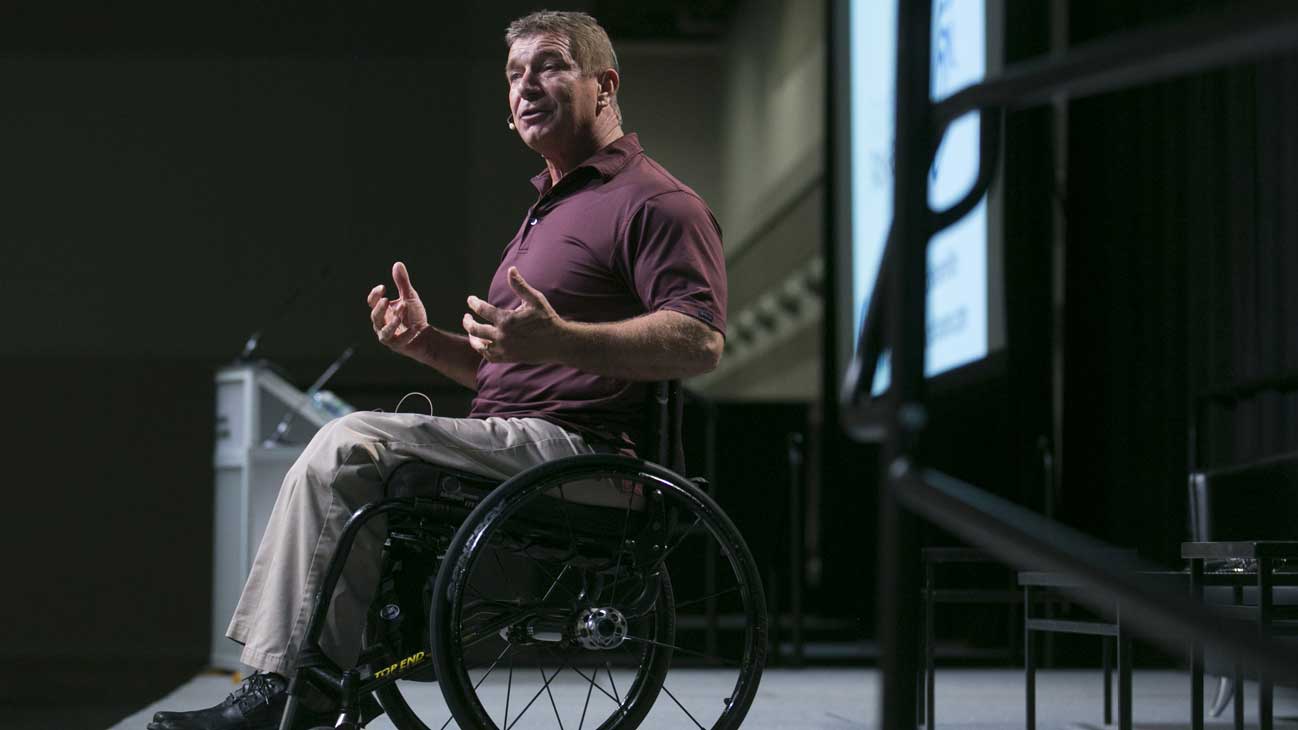Speakers’ Spotlight is honoured to welcome Canadian icon Rick Hansen, champion for accessibility and inclusion who is also widely known as the “Man in Motion” to our roster. Today also marks the UN International Day of Persons with Disabilities, on which the Rick Hansen Foundation, together with the Angus Reid Institute, released key findings in their joint national survey that highlights the problems still facing people with disabilities.
“As we mark the UN’s International Day of Persons with Disabilities, the Rick Hansen Foundation wants to shine a light on accessibility and disability in Canada. This report reveals an urgent need for change, not just because it’s the right thing to do, but because more than one billion people around the world are not living to their full potential,” says Rick.
The survey shows respondents strongly agree that accessibility is a basic human right and not a privilege, but indicated that communities have a long way to go to reach the ideal level of access for all. When asked to rate the current state of their own communities versus how accessible communities should be, respondents saw vast room for improvement.
The public believes Canada should be a world leader in accessibility, feeling strongly that ensuring people with physical disabilities can fully participate in life should be a high priority for the country.
This data, gathered from a randomized sample of 1,527 Canadians, is part of a national public opinion poll canvassing disability and accessibility conducted by the Angus Reid Institute, in partnership with the Rick Hansen Foundation.
Findings of the survey include:
- Canadians identified massive gaps between current and ideal levels of accessibility within their communities, with the biggest barriers being access to recreational opportunities, transportation around the community and access to private businesses
- 87% of survey respondents believe Canada should be a world leader in accessibility initiatives and make accessibility a high priority
- 90% of Canadians agree that accessibility for people with physical disabilities is a basic human right, not a privilege
- Nearly one-in-four Canadians (23%) surveyed say they have either a physical disability or mobility challenges, while more than half of the population (55%) has some degree of exposure to physical disability in their day-to-day life, either personally or through their family, social or work network
- Canadians significantly under-estimate the prevalence of disability among the national population: a full majority peg it at a fraction (1 in 25 or fewer) of the official estimate of roughly one-in-seven

